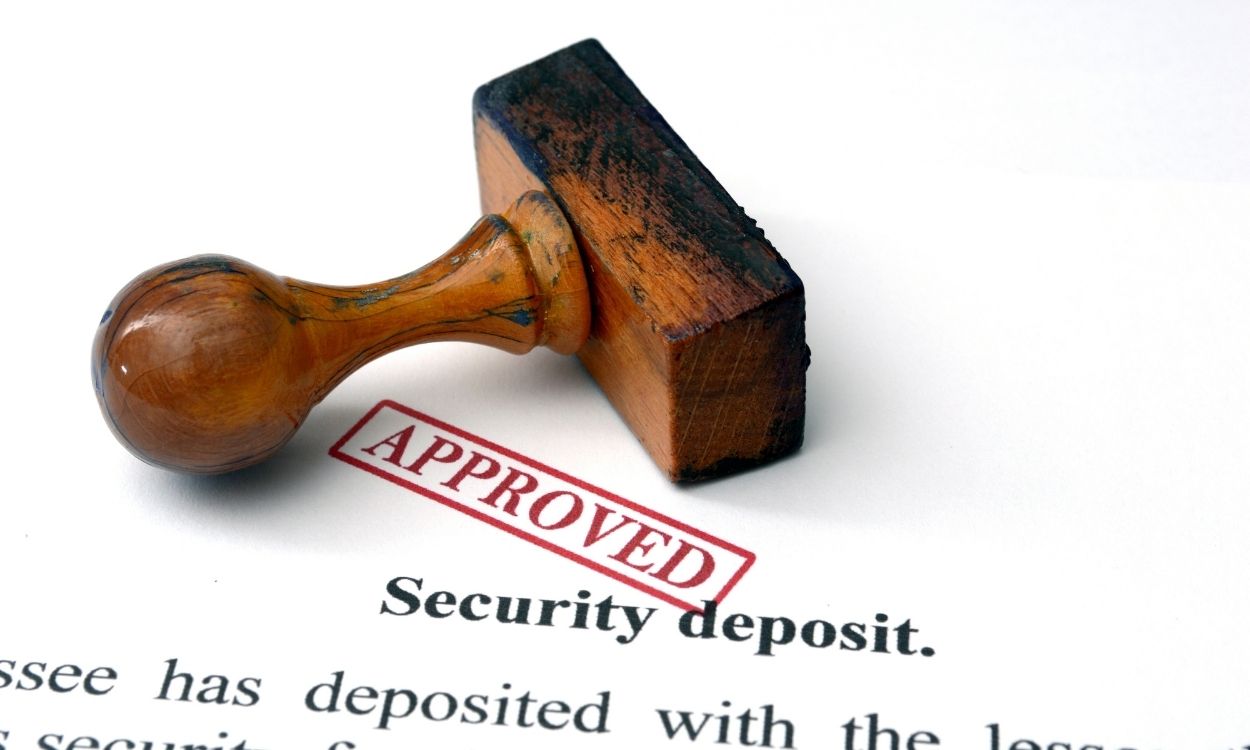Virginia Security Deposit Laws
As a landlord, having tenants pay a security deposit can help provide a landlord with some cushion against potential financial damages. These can occur in any of the following ways:
- If a tenant moves out of their rental unit without paying the unpaid rent
- If a tenant moves out of their rental unit without clearing their unpaid utility bills
- In the case a tenant abandons a dwelling unit
- If a tenant (or their guest) causes negligent damage to the rental
In such cases, the landlord will be able to minimize their losses by making appropriate deductions from a tenant’s security deposit.
In Virginia, the VA Code § 55.1-1226 oversees the collection and return of tenants security deposit. The following Virginia landlord tenant laws is a basic overview of the security deposit law and rules a landlord must abide by:
1. Maximum Security Deposit
Acording to Virginia security deposit laws, the security deposit fee can’t exceed the cost of two months’ rent. If the monthly rental price is, for instance, $1,300, then the security deposit shouldn’t exceed $2,600.
The landlord may be able to ask the tenant to pay an additional pet deposit. Ensure to provide written notice if you do decide to do this. This ranges between $200 and $500. The landlord may then use this deposit towards any damage a pet may cause to their dwelling unit.
That said, disabled tenants who use service dogs are exempt from paying a pet deposit. A service animal isn’t a pet and disability is a protected class under Virginia Fair Housing laws .
The Fair Housing Act requires Virginia landlords to make reasonable accommodations for tenants with disabilities. This ensures that disabled tenants have equal opportunity to use and enjoy their rental unit.

2. Allowable Deductions on a Tenant’s Security Deposit
Under Virginia landlord tenant law,landlords in Virginia have a right to make deductions on their tenant’s security deposit. There is one caveat, though. The security deposit deduction must be legitimate. In other words, a landlord can’t make deductions to a tenant’s security deposit for no reason.
Under Virginia security deposit law the following are legitimate reasons for deductions:
- Unpaid utility bills
- Due rent under the rental agreement
- Any financial losses a landlord may incur as a result of the tenant not abiding by the terms of the rental agreement
- Any costs or charges that are allowed under the lease agreement or rental agreement
- Damage exceeding normal wear and tear to the dwelling unit
What constitutes wear and tear? Normal wear and tear is damage that naturally occurs in a rental property due to aging and regular use. Examples include loose door handles, worn finish on bathroom fixtures, dirty grout, and faded carpet.
Damage in excess of normal wear and tear can be penalized. Examples include holes in a wall, missing tiles or fixtures, a broken window, a smashed bathroom mirror, or torn wallpaper.
3. Security Deposit in Lieu of Last Month’s Rent
Under Virginia law, tenants aren’t entitled to use their security deposit as payment for last month’s rent. The only exception is if the written agreement has a clause allowing it.
4. Returning a Tenant’s Security Deposit
According to Virginia law, once a tenant has moved out the landlord must return their security deposit (or whatever is left of it) within 45 days. If the landlord made any deductions, then the Virginia landlord must provide the tenant with a written notice of the itemized deductions, plus the portion of the deposit.

The tenant is responsible for providing the landlord a forwarding address to deliver the security deposits and the written notice to the tenant. If they don’t, the landlord will only be required to keep the security deposit for one year.
After that, the Virginia landlord will need to escheat it to the Commonwealth by paying it into the State Treasury. Once the landlord does this, the landlord will have no further liability to the tenant in regards to the storage of the tenant’s deposit.
Failure to return the security deposit back to the tenant is unlawful and could lead to potential propblems with landlord tenant laws. Landlords may be made to pay back the entire amount to the tenant, plus certain damages, reasonable attorney fees, and court costs.
5. Receipt Requirements
In some states, landlords are required to provide their tenants with a security deposit receipt upon receiving it. This is, however, not the case in the state of Virginia.
Nevertheless, it’s still advisable to do so for record-keeping purposes.
6. Interest on Security Deposit
In the neighboring state of Maryland, landlords are required to store their tenant’s deposit in a separate interest-bearing account. The account must also be federally insured. The interest must grow at the daily U.S. Treasury yield curve for one year, or 1.5 percent.
This is, however, not the case for landlords in the state of Virginia. Virginia laws no longer require Virginia landlords to store the security deposits in any particular manner.

7. Change of Property Ownership
In case the property’s ownership changes hands while a lease subsists, the incoming Virginia landlord will inherit the outgoing landlord’s responsibility to refund the tenant’s deposit after the lease ends.
As such, it’s the new property owner’s responsibility to procure the security deposits from the outgoing Virginia landlord.
Conclusion
We hope this article has helped you understand Virginia's security deposit law. However, if you have any questions, get in touch with Redsail Property Management! Our full-suite of management services can help increase your ROI and reduce your stress.
We’ve helped countless property owners in Hampton Roads overcome their rental challenges. Contact our team of skilled property managers to get started right away!
Disclaimer: This blog isn’t intended to be a substitute for professional legal advice. Laws change and this information may become obsolete at the time you read it. For further help, please get in touch with a qualified attorney or an experienced property management company.